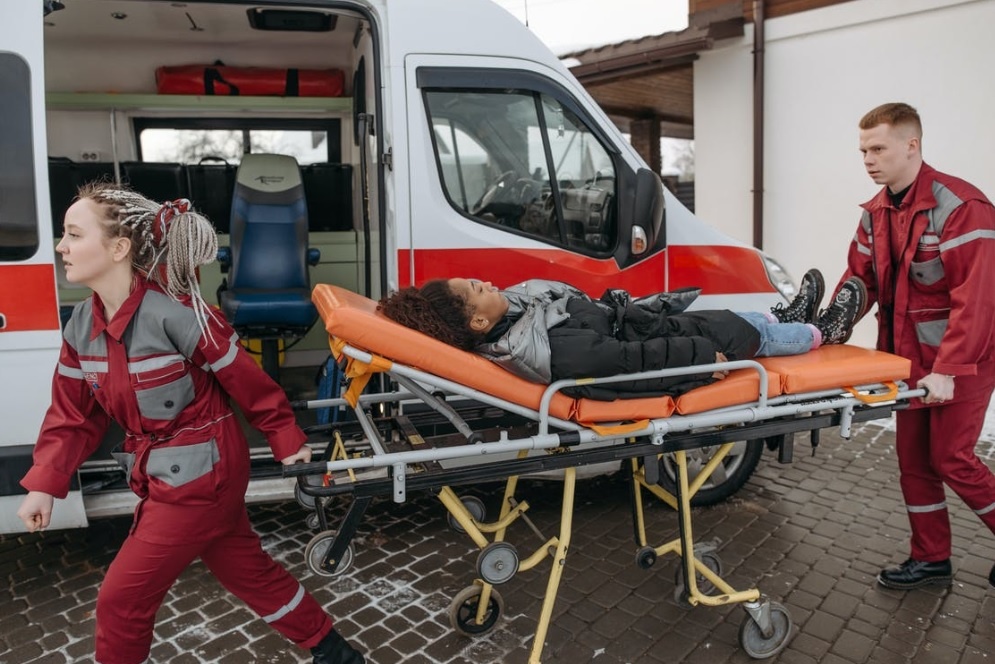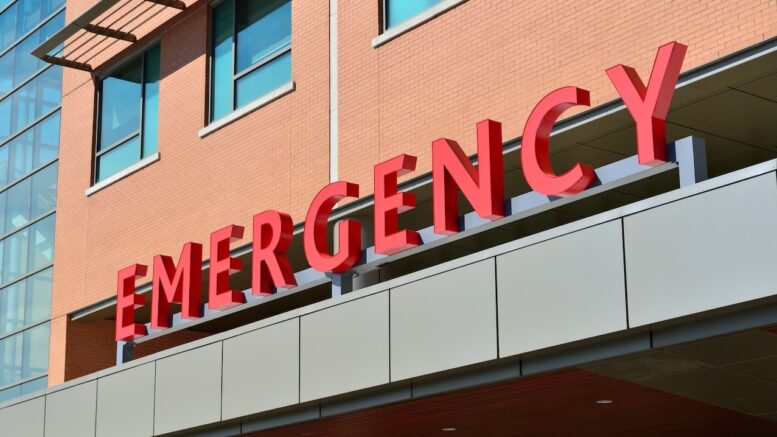Knowing where to go for assistance in times of need could make a difference in life and death. In 2023, it’s crucial to be familiar with the numerous emergency resources that can be called upon in times of need. Knowing where to find help, whether for acute medical care or assistance with mental health issues or financial difficulties, can help you face adversity with more strength and confidence. In this essay, we’ll go through 10 crucial emergency resources you should be familiar with in 2023, so you may be better prepared for and more efficiently respond to situations.
Emergency Medical Responders
In a medical emergency, time is of the utmost importance. Dialing 911 to obtain emergency medical services is an important resource for getting help fast. Rapidly responding to medical emergencies, EMS personnel provide top-notch care and transport patients to the nearest hospital. They know how to evaluate and stabilize patients, give lifesaving measures, and get people the care they need as soon as feasible. If you or someone close to you needs immediate medical attention, calling 911 right away can significantly improve the prognosis.
Official Report from the NWS
If you value your life and the lives of others around you, you know how important it is to know what’s going on with the weather. The National Meteorological Service issues timely and precise forecasts, alerts, and warnings for various meteorological occurrences. You can use their services to monitor natural disasters, including hurricanes, tornadoes, floods, and winter storms. The NWS provides accurate forecasts, monitors storm systems, and alerts the public on time so they can take the necessary safety measures. By monitoring NWS predictions, you can safeguard yourself, your loved ones, and your home from the possible effects of severe weather.
Crisis Numbers
Crisis hotlines can be a lifesaver in times of emotional turmoil or when you fear for someone’s physical safety. The National Suicide Prevention Lifeline (1-800-273-TALK) is staffed by experienced experts available 24/7 to listen, provide guidance, and refer you to useful resources. These hotlines provide a safe and understanding place to voice concerns, receive comfort, and get help when needed. Whether you or a loved one are dealing with mental health concerns, going through a crisis, or needing immediate assistance, crisis hotlines are there to answer your call and offer support.
Temporary Safe Havens
If you live in a region that is prone to natural disasters or other events that could cause mass displacement, you must know where and how to contact local emergency shelters. Temporarily safe havens where people and families can rest, get the supplies they need, and receive help are provided by emergency shelters. You may rest assured knowing you’ll have a safe place to stay in times of need, thanks to the services provided by these shelters. Shelters like these have committed staff members who help residents access supplementary services like healthcare, counseling, and housing placement. Knowing where nearby emergency shelters are can help you get the help and necessities you need to get through tough times and get back on your feet faster.
Help in Times of Financial Need
Unexpected financial difficulties can be quite stressful, but resources are available to help you get through them. It’s crucial to look for emergency aid programs, whether they’re regional or nationwide. These services provide a temporary safety net to aid with basic requirements like housing, utilities, food, and transportation while you get back on your feet. You can get some instant relief from the financial and emotional stress brought on by the crisis you’re experiencing by reaching out to these resources for support. In times of financial uncertainty, knowing about and accessing emergency financial help options can be a lifeline that allows you to focus on getting back on your feet.

Local Volunteer Ambulance Corps (VVC)
When it comes to local catastrophe preparedness and response, Community Emergency Response Teams are invaluable. Contribute to the stability of your neighborhood by joining CERT or reaching out to them for help. Volunteers who complete CERT training receive instruction in first aid, search and rescue, and other lifesaving procedures in the event of a crisis. In times of need, these selfless individuals are there to lend a hand before trained personnel arrive. Members of the Community Emergency Response Team (CERT) are invaluable in times of disaster, whether they’re helping with evacuations, administering first aid, or assessing damage. Learning about your local Community Emergency Response Team (CERT) program improves your ability to help others and boosts your community’s response capacity in the event of an emergency.
DRCs, or Disaster Recovery Facilities
Disaster Recovery Centers are essential in supporting individuals and communities after catastrophic events. Those in need have quick access to a multitude of information and help programs at these sites. You can get help applying for disaster aid, talk to a counselor about your feelings, find out about housing assistance programs, and learn about other recovery tools and services at a DRC. To better respond to the needs of persons impacted by a disaster, DRCs bring together government agencies, non-profit groups, and community partners. If you know where the closest DRC is, you can take advantage of the lifesaving treatments and resources they provide while returning to health.
Departments of Emergency Management
Local and national emergency management agencies are indispensable when it comes to preparing for, responding to, and rebuilding after natural disasters. These organizations help communities prepare for and respond to emergencies, share critical data, and coordinate relief efforts. They collaborate closely with first responders, government agencies, NGOs, and community groups to ensure a well-coordinated and successful response to catastrophes. Knowing who to contact and what to do in an emergency is much easier when you have all the information you need about your local Emergency Management Agency. Their knowledge and approach are all-encompassing, which helps with public safety, emergency response, and community recovery. When you know what Emergency Management Agencies do, you can help prepare for emergencies and follow their lead in dangerous situations.
Team Responding to Cyber Incidents
Cybersecurity response teams are essential in today’s world of constant cyberattacks and threats to keep people and businesses secure online. Teams like this are trained to spot, react to, and lessen the effects of cyber incidents like hacking, data breaches, and malware assaults. Contacting your country’s cybersecurity response team can help you get expert advice and assistance during a cyber incident. They will assist you in filing a report, determining the extent of the harm, and suggesting the next steps for safeguarding your digital assets and private data. Cybersecurity response teams coordinate with law enforcement, technological professionals, and business partners to stay abreast of new cyber dangers and offer preventative measures. To improve your digital security posture and respond effectively to cyber incidents, protecting your online reputation and limiting any damage that can result, you need to become acquainted with the contact information and resources supplied by cybersecurity response teams.
Phone Numbers for Addiction Support
Substance abuse can cause serious problems for both the addict and their loved ones, but there are hotlines set up specifically to help those in need. A substance abuse hotline connects you with knowledgeable, discreet professionals who can help you with any aspect of your addiction. These hotlines offer a safe place to talk about your problems without fear of judgment, whether you’re looking for help for yourself or a loved one. They might know of helpful rehabilitation programs, support groups, counseling services, and other options based on your circumstances. Getting to know the local substance addiction hotlines is a crucial first step toward recovery and gaining the assistance you need to live a happier, healthier life free of drugs and alcohol.
Conclusion
Knowing how to access the top 10 emergency resources in 2023 can help you and your loved ones weather any storm. These tools are invaluable in distress, from national weather alerts and substance misuse helplines to emergency medical services and crisis hotlines. Learn about local resources, including emergency shelters, aid programs, and community response teams, to get help in an emergency, save money, and strengthen your neighborhood. Access to vital resources and expert counsel in times of crisis is further ensured by maintaining contact with disaster recovery centers, emergency management agencies, and cybersecurity response teams.
